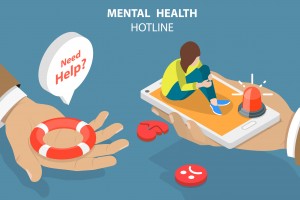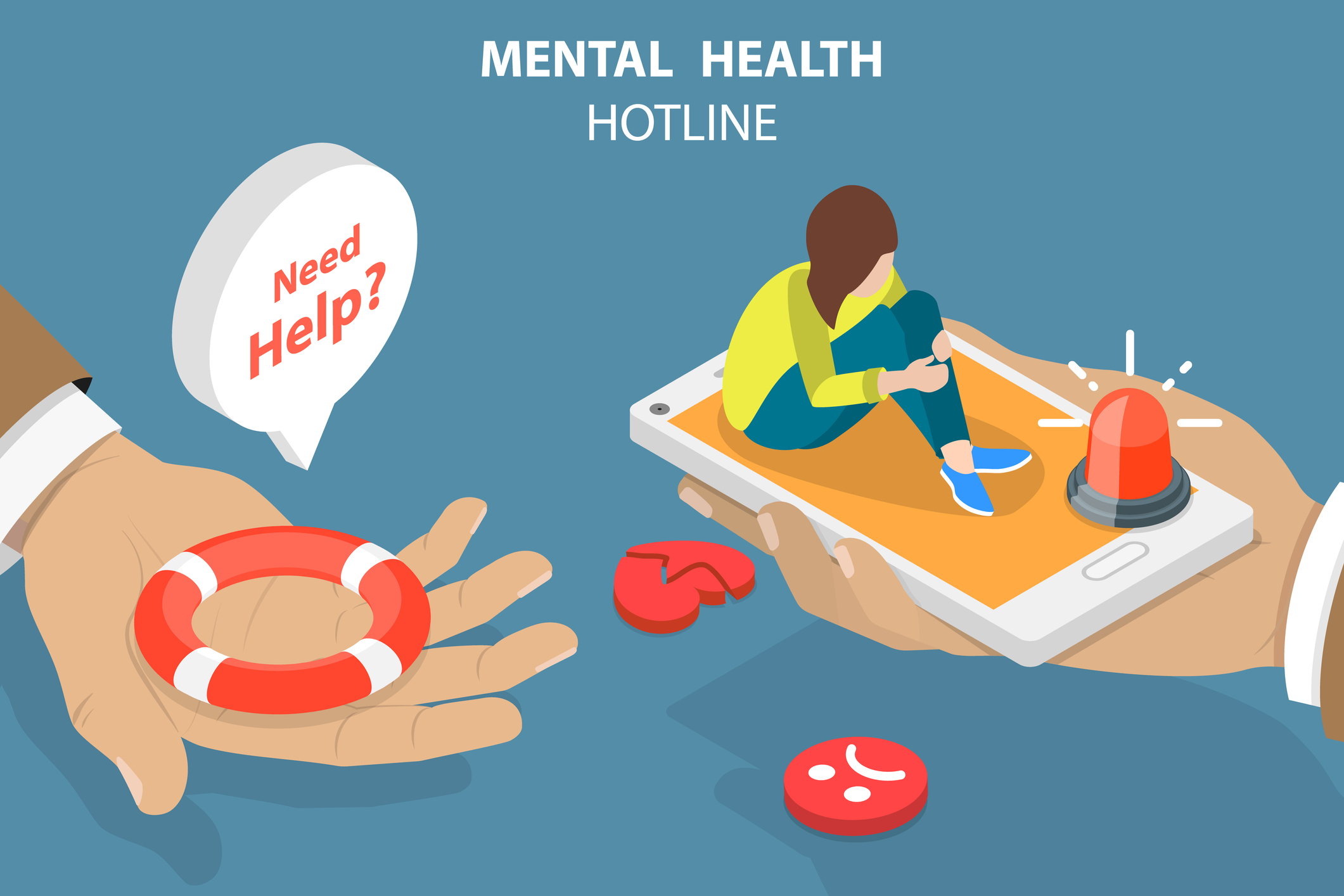 As America faces a mental health crisis, the need for suicide prevention services is more imperative than ever. According to the National Alliance on Mental Illness, suicide is ranked as the second primary cause of death in young people among the ages of 10 to 34 and the tenth most frequent cause of death in the United States.
As America faces a mental health crisis, the need for suicide prevention services is more imperative than ever. According to the National Alliance on Mental Illness, suicide is ranked as the second primary cause of death in young people among the ages of 10 to 34 and the tenth most frequent cause of death in the United States.
Since 1999, the suicide rate has increased more than 30 percent, with a 10 percent increase among individuals ages 15-24 (National Institute of Mental Health, 2022). The COVID-19 Public Health Emergency has further exacerbated the need to improve access to crisis intervention services. The National Suicide Prevention Lifeline reported receiving almost 2.4 million calls in 2020 (Bjaworski, 2021). While these statistics are a significant cause for concern, social workers have been instrumental in providing support to people in crisis.
Effective July 16, 2022, Lifeline will be using the designated three-digit code 988 instead of the 1-800-273-TALK (8255). Currently, the National Suicide Prevention Lifeline consists of a national network of call centers that provide free confidential support to individuals experiencing emotional distress or suicidal thoughts 24 hours a day, 7 days a week. Callers now are able to reach crisis services via the toll-free national hotline or by calling 911. In July, callers who dial 988 will be connected to a local suicide prevention hotline making it easier to access immediate lifesaving support. Vibrant Emotional Health, who is the current administrator of the National Suicide Prevention Lifeline, believes that this change will help increase accessibility to these much-needed services.
Initially, introduced in the National Suicide Hotline Improvement Act (H.R. 2345) of 2017 and subsequently adopted into the law in 2020 via National Suicide Hotline Designation Act, the 988 crisis line seeks to meet the growing demand for crisis intervention services and eliminate stigma against those seeking mental health support. This will ensure callers have access to a trained crisis response counselor to address their immediate mental health needs and be connected to ongoing care. Individuals will be dispatched to mobile crisis teams thus reducing involvement from law enforcement and Emergency Medical Services. It will also allow for more cost-effective early intervention strategies to reduce health care spending.
In addition, there is a need to ensure that 988 services are inclusive to diverse and historically marginalized groups such as LGBTQIA + individuals, youth, rural populations, and Black, Latin, A/O/X, Indigenous, Asian, and Pacific Islanders and People of Color. Including these communities demonstrates best practices in addressing long-standing mental health disparities through attention to dimensions diversity, equity, and inclusion. Lastly, collaboration among social workers and other mental health providers, crisis centers, telecommunications agencies, and other stakeholders is essential to maintain and further develop this vital resource.
On July 16, 2022, the National Suicide Prevention Lifeline (1-800-273-8255) will transition to an easy-to-remember, 3-digit number (988). This represents an unprecedented opportunity to strengthen and expand the existing network of over 200 locally operated and funded crisis centers across the country.
988 Job Opportunities from SAMHSA
In advance of the 988 transition in July, the Lifeline suicide & crisis network is looking to bring on new volunteers and paid employees to answer calls, chats, and texts from people in crisis. All employees and volunteers receive training, so if you are a caring person who wants to help those in crisis, apply today.
Find YOUR opportunity: https://www.samhsa.gov/find-help/988/jobs
Read more about 988 at https://www.samhsa.gov/find-help/988
References
Bjaworski. (2021, September 22). What you need to know about the suicide prevention hotline changing to 988. KVC Health Systems.
Mental health by the Numbers. (n.d.).
Team, A. C. (2021, December 9). Vibrant and 988. Vibrant Emotional Health.
U.S. Department of Health and Human Services. (n.d.). Suicide. National Institute of Mental Health.
Prepared by Denise Johnson, LCSW-C, NASW Senior Practice Associate, Clinical Social Work




